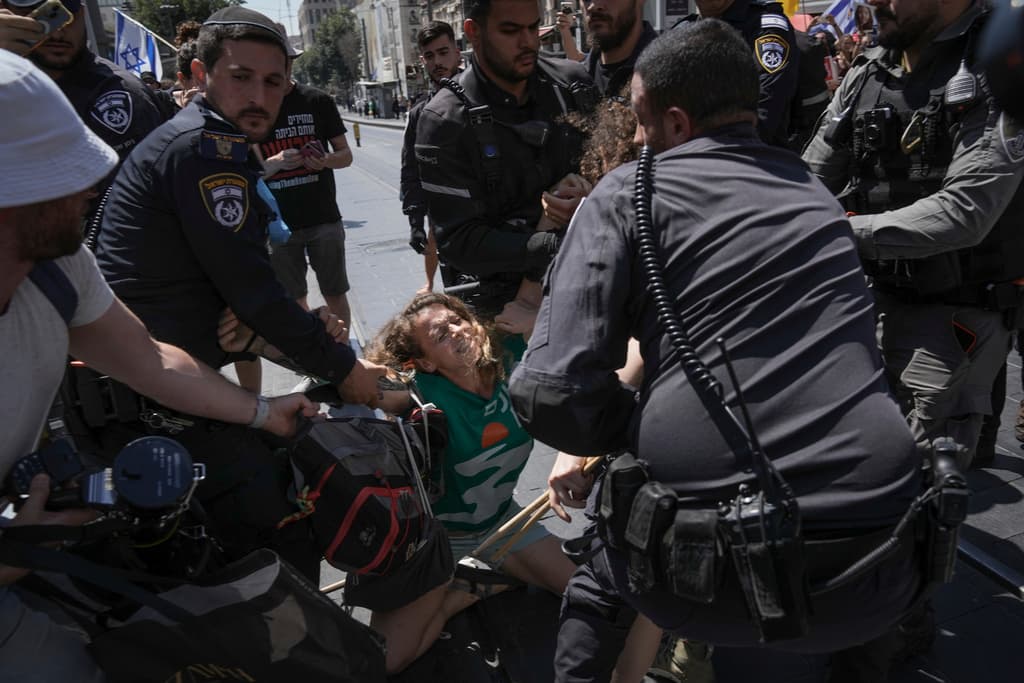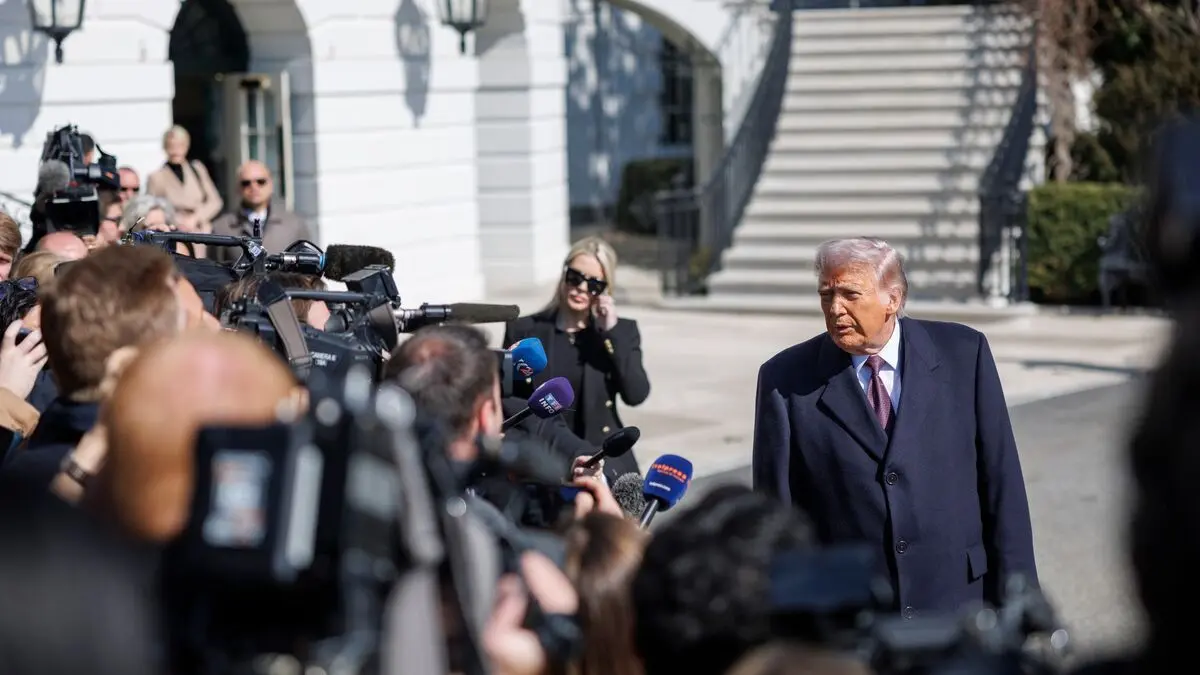Thousands of demonstrators are marching through Tel Aviv and other Israeli cities.
Extensive protests against Prime Minister Benjamin Netanyahu's government are underway in large parts of Israel on Sunday. In Jerusalem, police and demonstrators have clashed.
During the day, mass demonstrations are being held and highways are being blocked in several places. Along the main road between Jerusalem and Tel Aviv, demonstrators have set tires on fire, and outside several politicians' homes, crowds are gathering with megaphones.
The right-wing government has blood on its hands, demonstrators shout outside parliamentarian Amir Ohana's house in Tel Aviv, according to public service company Kan.
In Tel Aviv, several people have been arrested, reports Times of Israel, and in Jerusalem, police and demonstrators have clashed. There are also reports of arrests.
Started at the same time
Demonstrators have also gathered outside, among others, Defense Minister Yoav Gallant's and Foreign Minister Israel Katz's residences. Police have increased security outside Netanyahu's residence in Jerusalem, according to AP.
Protests against the government and Israel's warfare in Gaza have been raging for months.
Today's demonstrations are described as particularly large, as they take place nine months after the war began. Sunday's protests started at 6:29 am – exactly the same time as the extremist group Hamas launched its bloody terrorist attack against Israel on October 7 last year, writes Times of Israel.
Demanding new elections
According to the newspaper, around 150 companies have allowed their employees to stop working and join today's demonstrations.
Sunday's protest actions began with the release of black and yellow balloons near the Gaza border. The organizers' plan is for the evening to culminate in mass demonstrations outside the military headquarters in Tel Aviv and near Netanyahu's residence in Jerusalem.
The demonstrators are demanding that the prime minister secure an agreement to bring home the remaining over 100 people being held hostage in Gaza – alive and dead – and that the government then resigns and new elections are called.
Any possible agreement with Hamas will allow Israel to return and fight until its goals are met, comments Prime Minister Benjamin Netanyahu's office on the talks about a ceasefire.
"Israel will maximize the number of hostages who return alive from Hamas captivity," adds Netanyahu's office, according to AFP.
The Islamist extremist group Hamas attacked Israel on the morning of Saturday, October 7, last year. Around 1,150 people are estimated to have fallen victim to the terrorist attack, most of them civilians, and more than 200 people were taken hostage.
Israel responded by declaring war. It has besieged Gaza, bombed the strip continuously, and entered with ground forces with the stated aim of destroying Hamas.
According to Hamas-controlled authorities, more than 38,000 people have been killed in Israeli attacks in Gaza since the outbreak of war. Large parts of the area's buildings have been razed to the ground. Aid organizations are repeatedly warning of severe famine and an escalating humanitarian crisis.
More than 100 people are still being held hostage in Gaza, according to Israel, since about the same number were released in exchanges and a few more were rescued. Many of those remaining are feared to no longer be alive.






